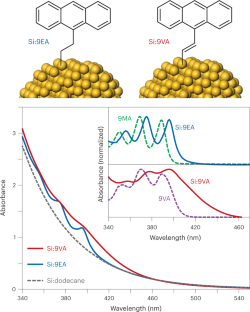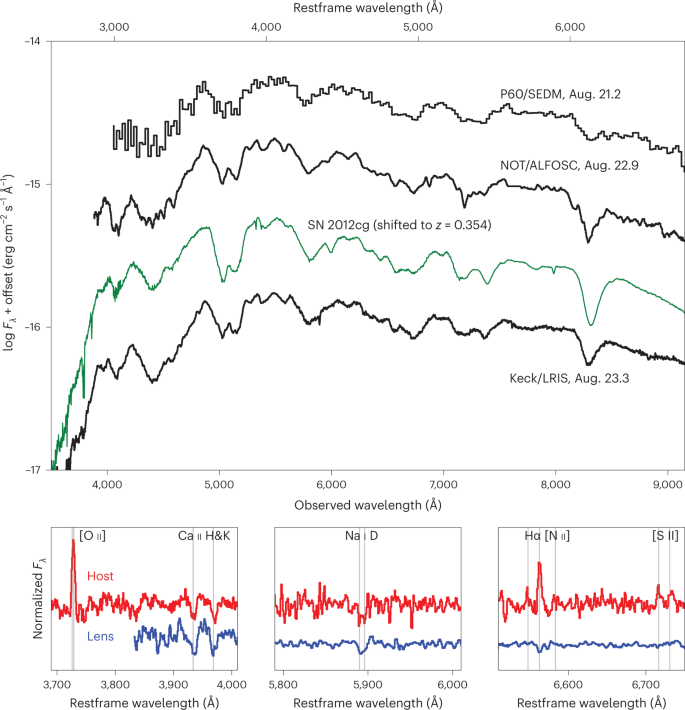2023-06-12 カリフォルニア大学リバーサイド校(UCR)
◆この材料は、小さなシリコンの「ドット」と有機分子から作られ、低エネルギーの光を高エネルギーの光に変換することができる。これにより、光起電力とがん治療など、多くの応用が可能となる。さらに、この新しい材料を使用することで、太陽電池の効率を向上させることも可能であり、低エネルギーの光を捕捉することができるため、太陽パネルのサイズを30%縮小できる可能性もある。これにより、バイオイメージングや光ベースの3Dプリンティング、霧の中での自動運転車のサポートなど、赤外線光を利用したさまざまな応用が向上する可能性がある。
◆この研究は、テキサス大学オースティン校、コロラド大学ボルダー校、ユタ大学、およびUCRを拠点とするチームによって実施され、新しい複合材料の設計が可能になることに興奮している。
<関連情報>
- https://news.ucr.edu/articles/2023/06/12/previously-unknown-material-could-revolutionize-cancer-treatment
- https://www.nature.com/articles/s41557-023-01225-x
シリコン量子ドットとアントラセンの強い結合により、効率的な光子のアップコンバージョンが可能 Efficient photon upconversion enabled by strong coupling between silicon quantum dots and anthracene
Kefu Wang,R. Peyton Cline,Joseph Schwan,Jacob M. Strain,Sean T. Roberts,Lorenzo Mangolini,Joel D. Eaves & Ming Lee Tang
Nature Chemistry Published:12 June 2023
DOI:https://doi.org/10.1038/s41557-023-01225-x

Abstract
Hybrid structures formed between organic molecules and inorganic quantum dots can accomplish unique photophysical transformations by taking advantage of their disparate properties. The electronic coupling between these materials is typically weak, leading photoexcited charge carriers to spatially localize to the dot or to a molecule at its surface. However, we show that by converting a chemical linker that covalently binds anthracene molecules to silicon quantum dots from a carbon–carbon single bond to a double bond, we access a strong coupling regime where excited carriers spatially delocalize across both anthracene and silicon. By pushing the system to delocalize, we design a photon upconversion system with a higher efficiency (17.2%) and lower threshold intensity (0.5 W cm–2) than that of a corresponding weakly coupled system. Our results show that strong coupling between molecules and nanostructures achieved through targeted linking chemistry provides a complementary route for tailoring properties in materials for light-driven applications.



